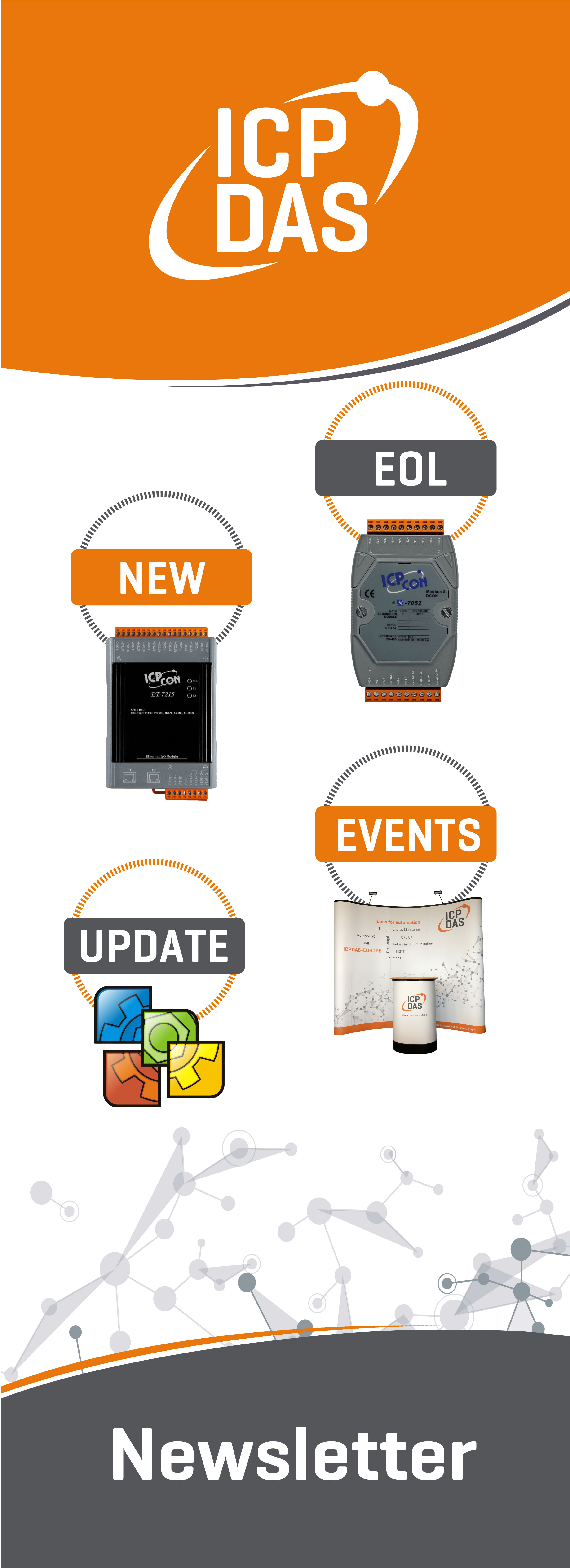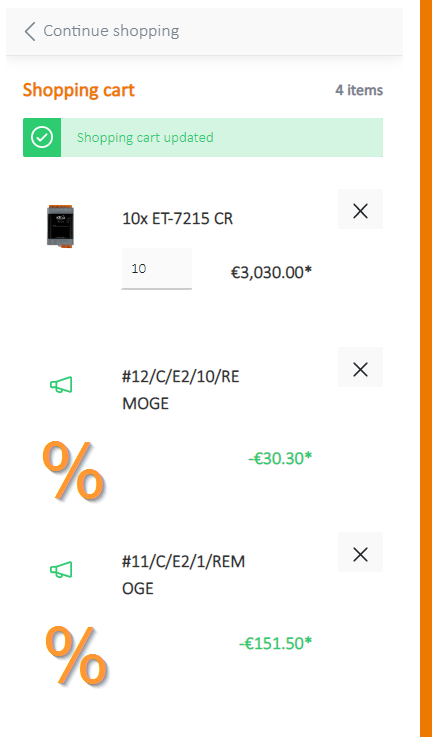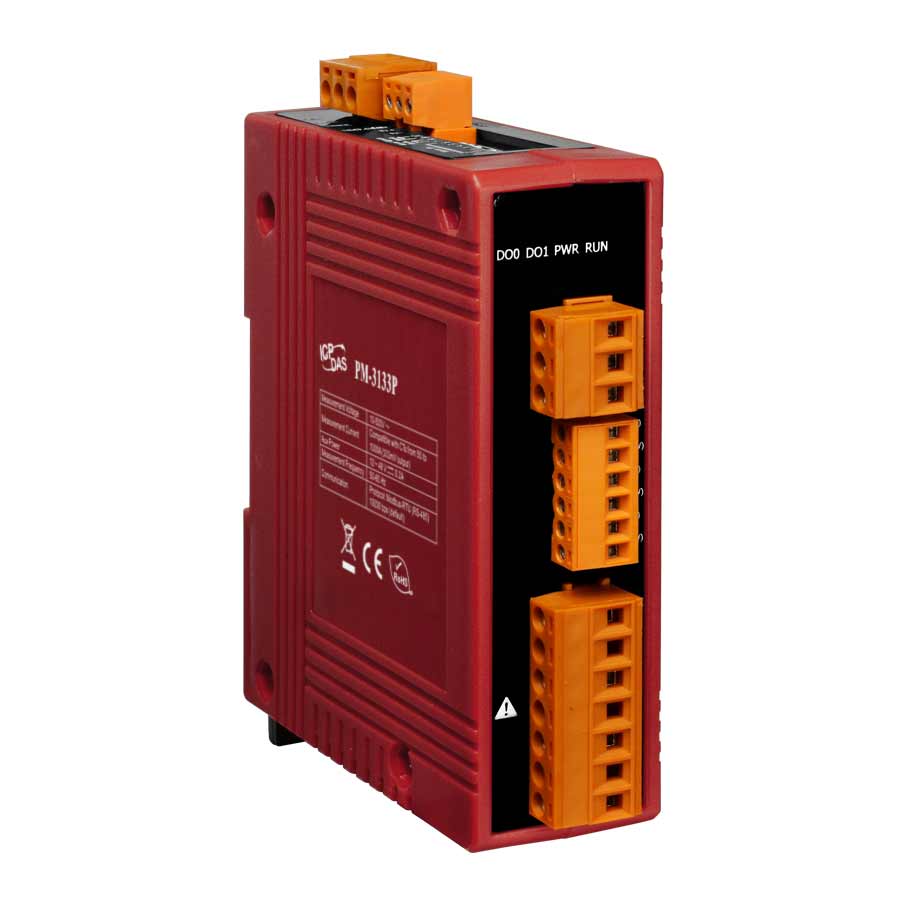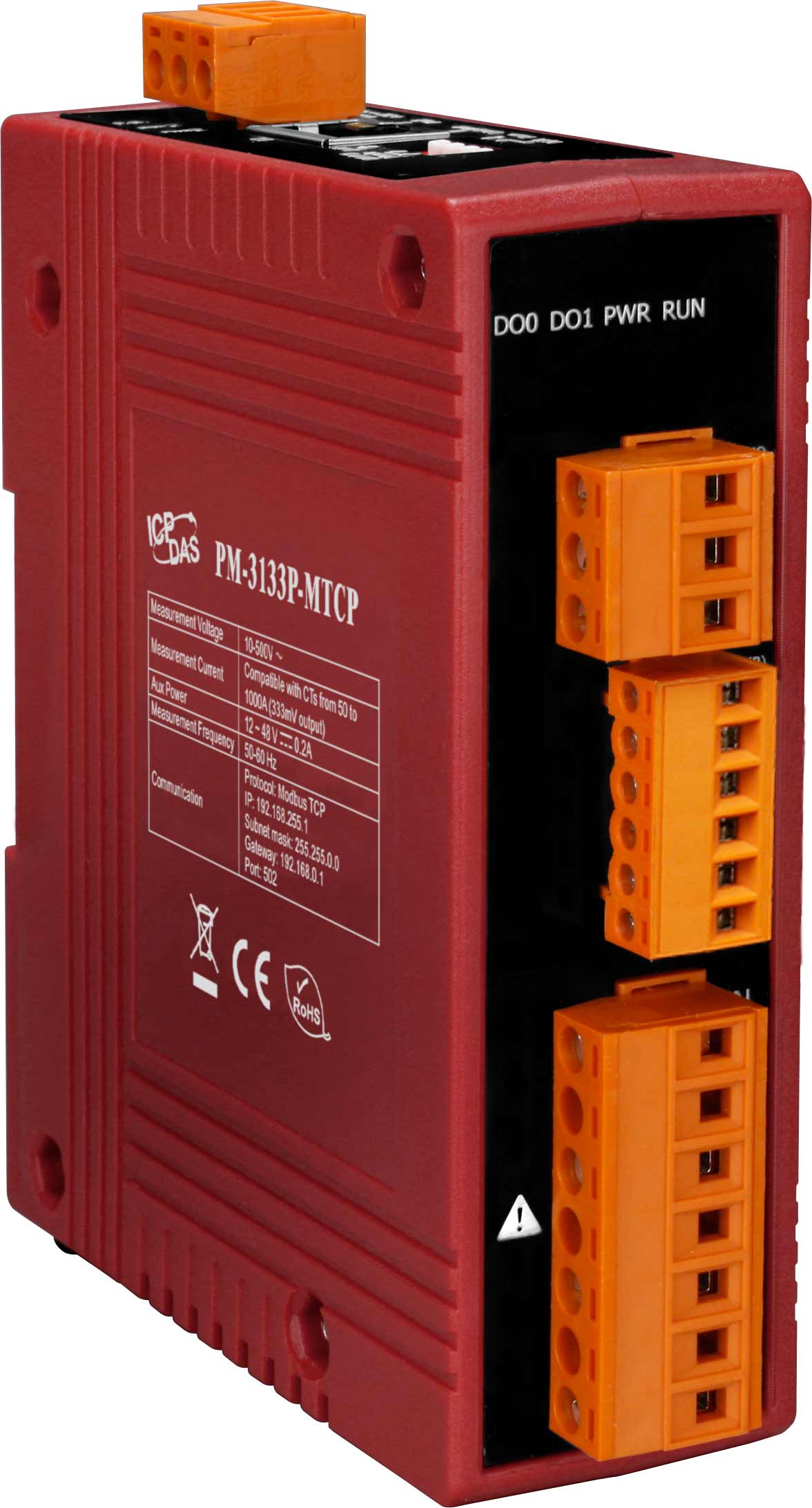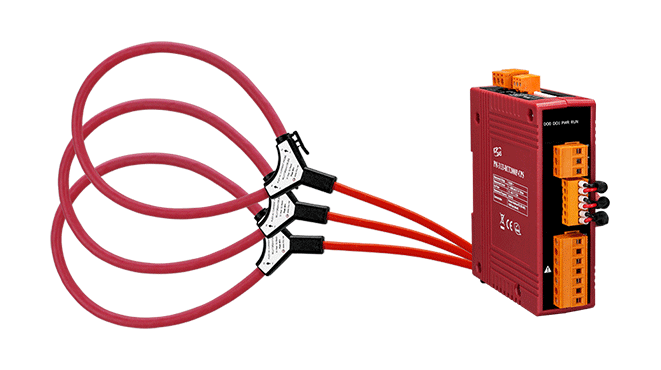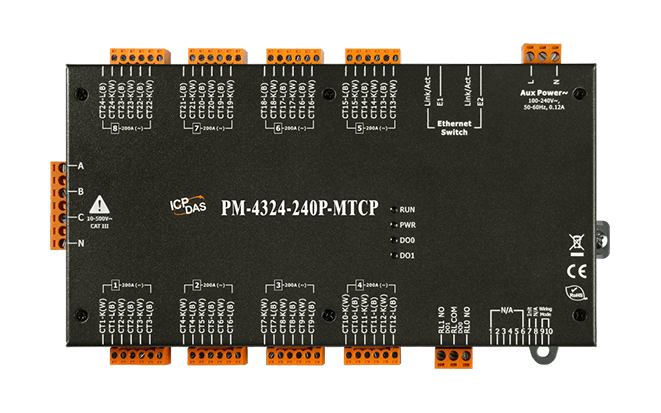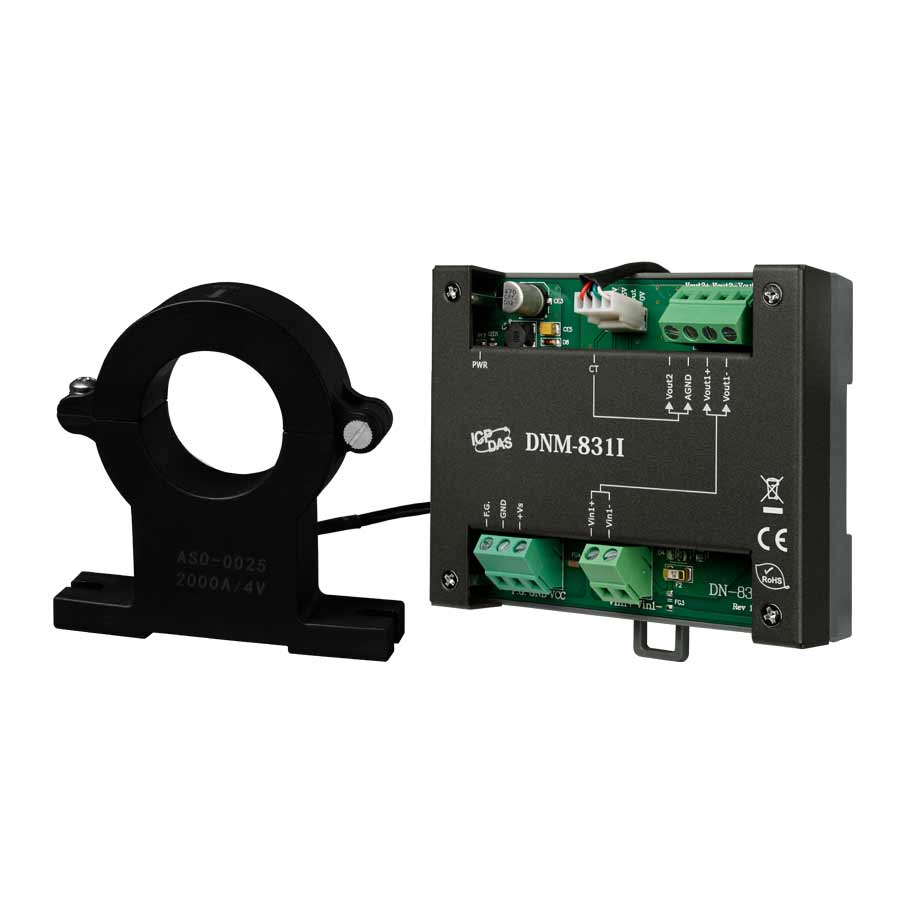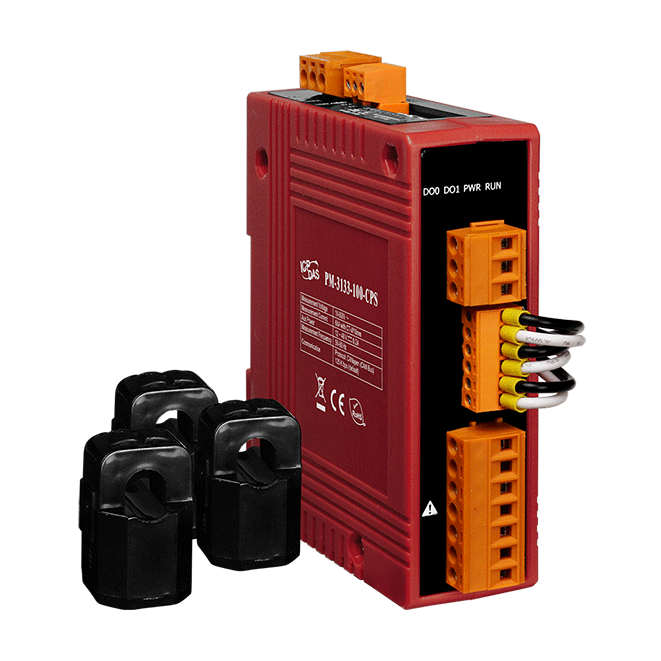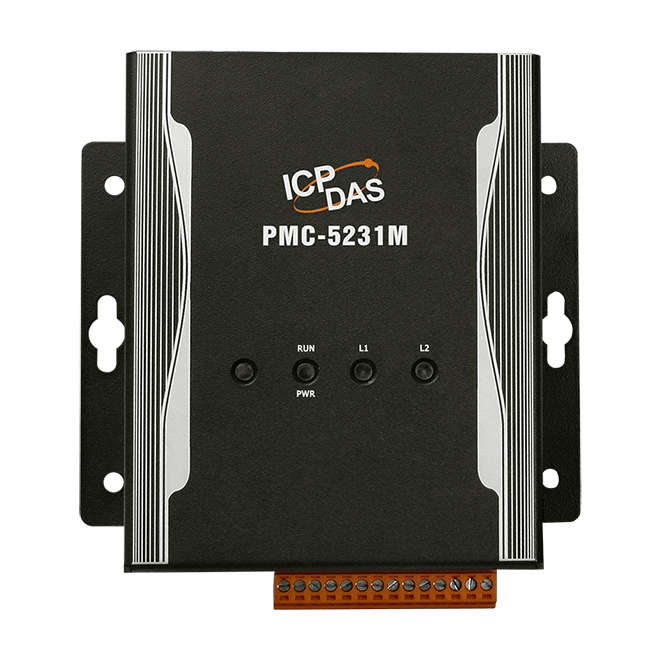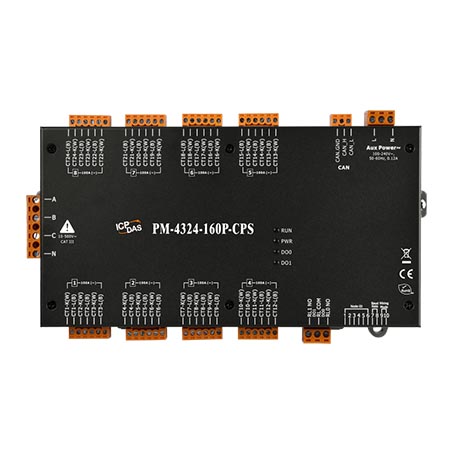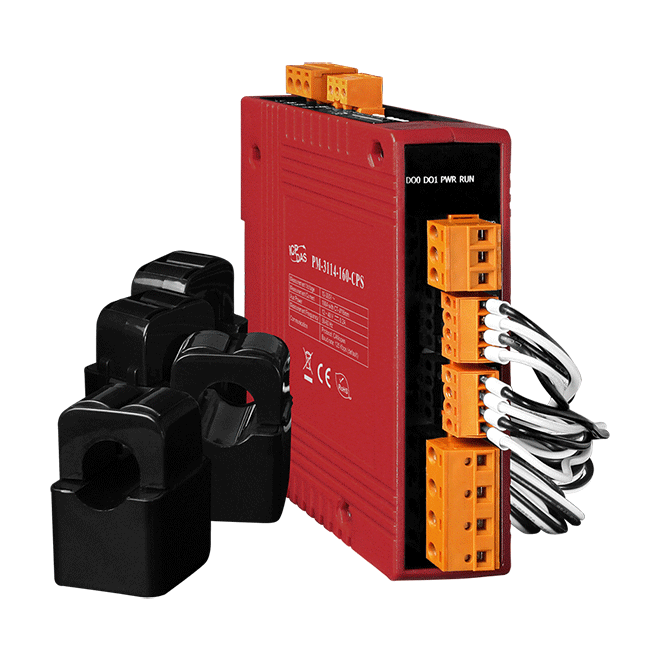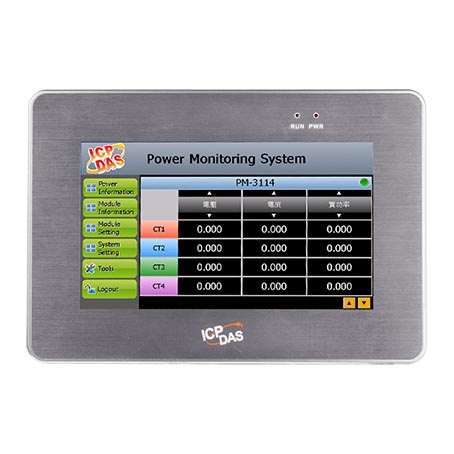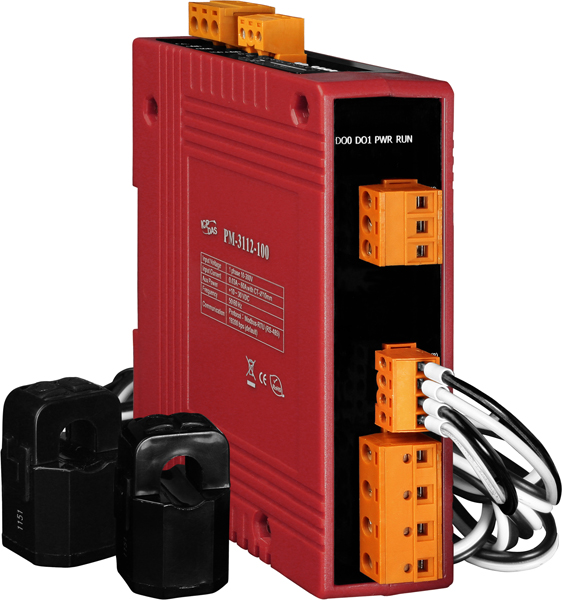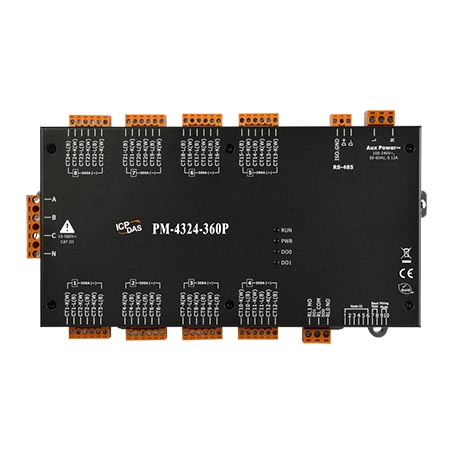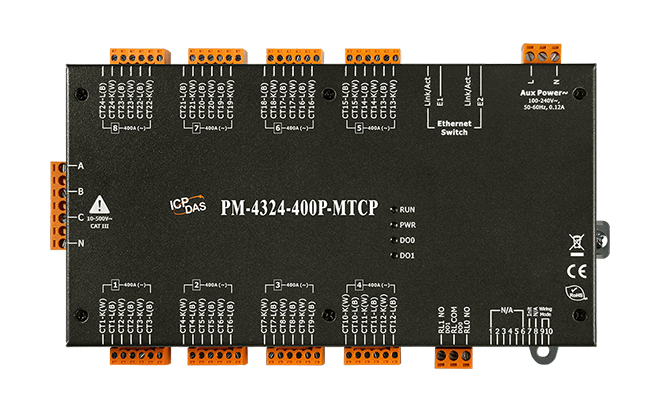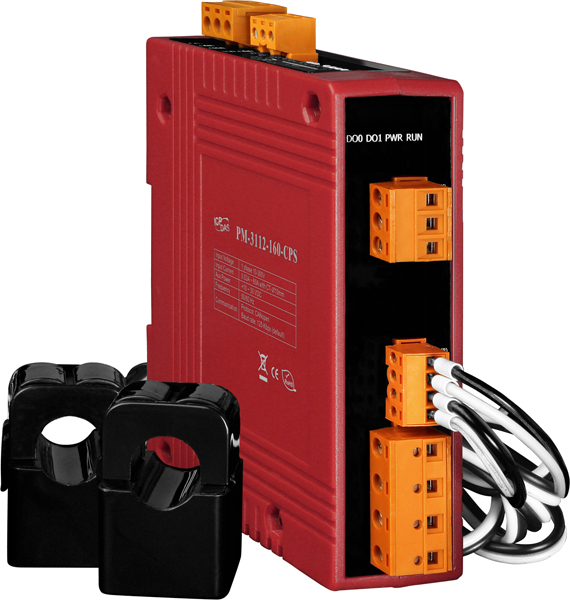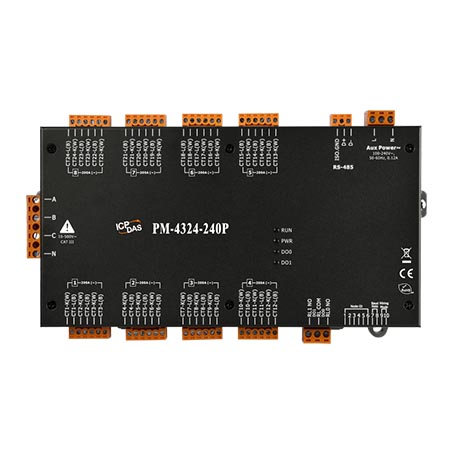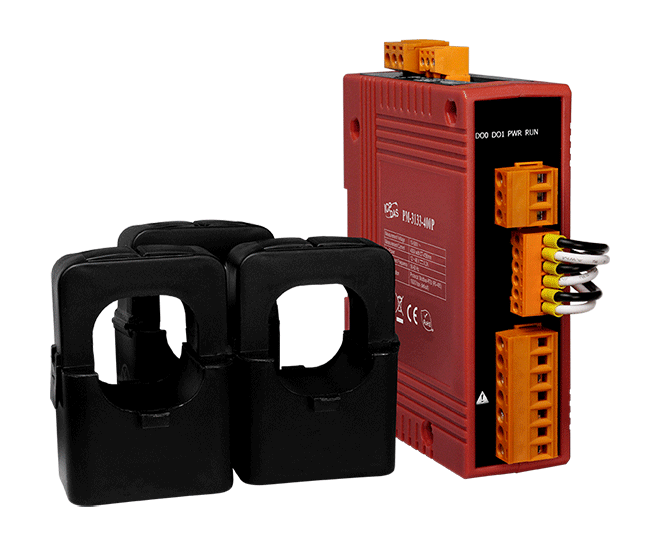DIN Rail Energy Meter
Efficient energy measurement in industrial environments
DIN rail energy meters are crucial in many industrial and commercial environments to monitor energy consumption and control costs. By recording energy data on systems and machines, potential savings are revealed, downtimes minimised and utilisation optimised. For reliable measurement and continuous monitoring of electrical parameters in real time, ICPDAS offers different series of electricity meters for:
- single or three phase measurements
- measuring ranges from 5A to 4000A
- current transformers (CTs) or Rogowski coils
- interfaces: Serial, Ethernet or CAN
Energy meter product series from ICPDAS
PM-2133D energy meter with display: for 3-phase measurements up to 400A, with RS-485 or Ethernet interface
PM-3000 energy meter: for 1-phase or 3-phase measurements up to 400A, with RS-485, Ethernet or CAN interface
PM-4000 multi-channel energy meter: for 24x 1-phase or 8x 3-phase measurements up to 4000A, with RS-485, Ethernet or CAN interface
Industrial suitability thanks to DIN rail
DIN rail mounting is a decisive advantage of energy meters in industrial environments. It enables easy installation and ensures that the meter can be mounted safely and in a space-saving manner in control cabinets or distribution boxes. This ensures the robust and reliable functioning of the DIN rail meter even under demanding conditions. With the wide temperature range of -20 ~ +70°C and a voltage input of 12 ~ 48 VDC, the energy meters meet all important industrial requirements.
Single phase vs. three phase measurements: Making the right choice
Single phase meters are ideal for applications where energy consumption and measurement are concentrated on a single phase of the power system. This may be the case in small or decentralised energy monitoring systems. Single phase meters are usually less expensive and easier to install because they monitor only one phase. They are used in smaller businesses or systems with low energy demand.
Three phase meters are widely used in industrial environments, especially in larger factories, manufacturing plants and large commercial buildings. These environments typically have higher energy demands and use 3 phase power supply systems. Three phase energy meters enable the measurement of total consumption across all three phases. This is important in industrial applications to ensure that total energy consumption is controlled and monitored. In industrial environments, it is important to monitor loads and irregularities in all three phases to ensure power balancing and to detect problems such as overloads or voltage imbalances. 3-phase power meters monitor the quality of electrical power in industrial applications, including factors such as phase shift and harmonic distortion.
Modbus RTU, Modbus TCP and CANopen network and interface options
Choosing the right communication protocol is critical to effectively utilising the data collected. Our DIN rail meters are optionally equipped with Modbus RTU, ModbusTCP and CANopen, which allow seamless integration into existing networks. Modbus RTU is well suited for use in serial interfaces, while ModbusTCP is based on Ethernet and enables faster communication. CANopen, on the other hand, is particularly common in automation technology and enables efficient data transmission. The CAN interfaces ensure robust and reliable communication in industrial environments.
Wide measuring ranges from 5A to max. 4000A
The DIN rail energy meters from ICPDAS are capable of measuring currents from 5A to a maximum of 4000A. This enables precise measurement and monitoring of energy consumption, regardless of the current in your application. Overall, wide measurement ranges up to 4000A offer the advantage of flexibility and adaptability in various industrial and commercial applications. They provide accurate measurement, scalability and cost efficiency, which is important in dynamic environments and changing requirements.
